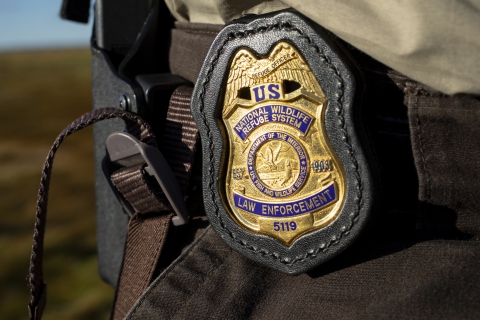Law Enforcement
Law enforcement is essential to virtually every aspect of wildlife conservation. The Office of Law Enforcement contributes to Service efforts to manage ecosystems, save endangered species, conserve migratory birds, preserve wildlife habitat, restore fisheries, combat invasive species invasive species
An invasive species is any plant or animal that has spread or been introduced into a new area where they are, or could, cause harm to the environment, economy, or human, animal, or plant health. Their unwelcome presence can destroy ecosystems and cost millions of dollars.
Learn more about invasive species , promote international wildlife conservation, and protect the public.
Service law enforcement today focuses on potentially devastating threats to wildlife resource-illegal trade, unlawful commercial exploitation, habitat destruction, and environmental contaminants. The Office of Law Enforcement investigates wildlife crimes, regulates wildlife trade, helps Americans understand and obey wildlife protection laws, and works in partnership with international, state, and tribal counterparts to conserve wildlife resources. This work includes:
- Breaking up international and domestic smuggling rings that target imperiled animals
- Preventing the unlawful commercial exploitation of protected U. S. species
- Protecting wildlife from environmental hazards and safeguarding critical habitat for endangered species
- Enforcing federal migratory game bird hunting regulations and working with states to protect other game species from illegal take and preserve legitimate hunting opportunities
- Inspecting wildlife shipments to ensure compliance with laws and treaties and detect illegal trade
- Working with international counterparts to combat illegal trafficking in protected species
- Training other federal, state, tribal, and foreign law enforcement officers
- Using forensic science to analyze evidence and solve wildlife crimes
- Distributing information and outreach materials to increase public understanding of wildlife conservation and promote compliance with wildlife protection laws
